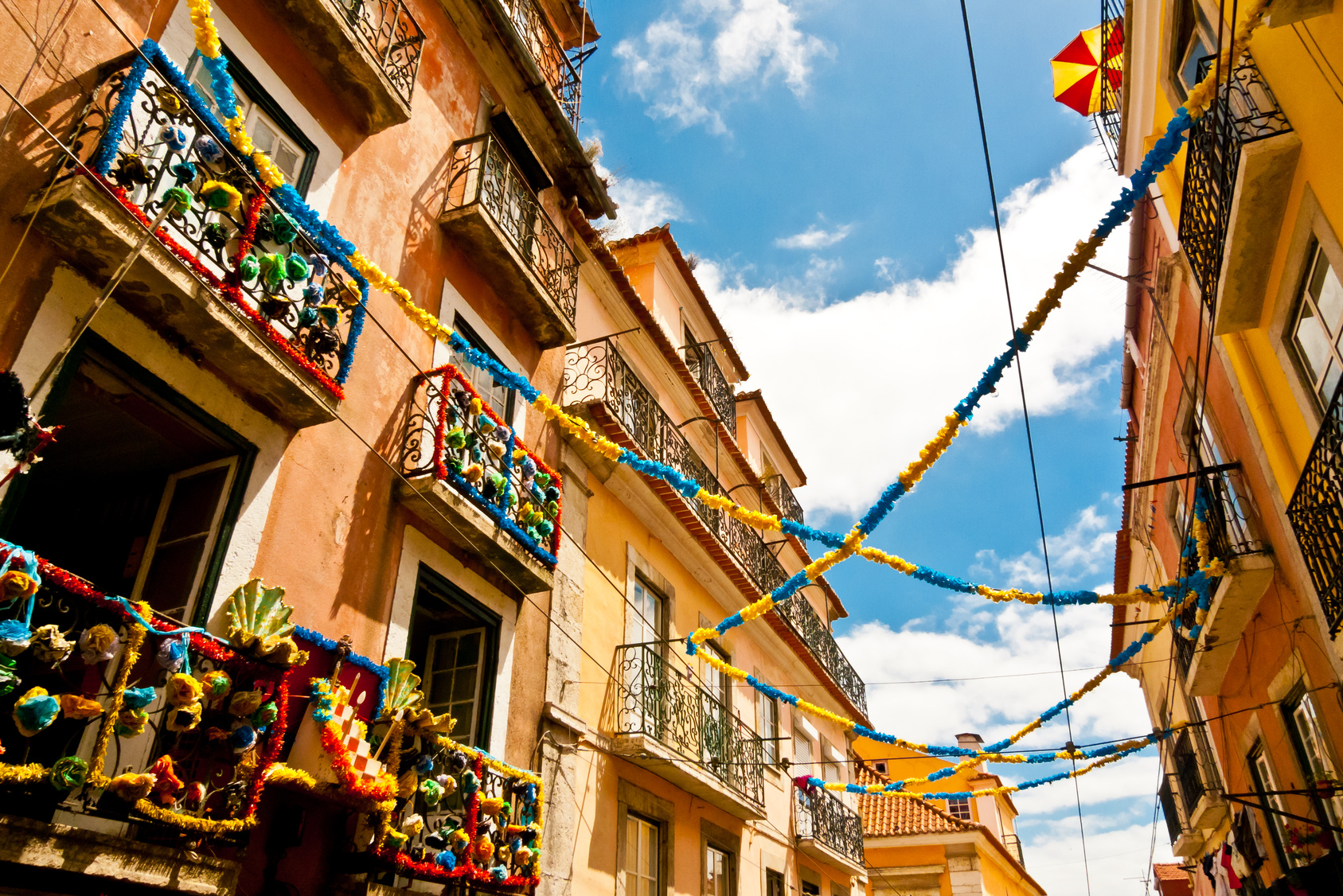
Portugal’s diverse cultural heritage and strong religious beliefs can be seen in its countless festivals celebrated throughout the year across the country. A combination of religious origin combined with sharing fine Portuguese food around large festival tables make for wonderfully colourful gatherings.
The carnival season is celebrated in Portugal in February. The first day of the carnival is usually marked with the march of students who are on holidays during the carnival. Mondays are referred to as pink Monday during which the jester’s procession is held. On Sundays and Tuesdays passionate and furious dancing takes all the attention. Since 1926 a tradition is followed in Portuguese known as matrafonas. According to this tradition males should dress as females in a vulgar manner. However, each region of Portugal preserves special features of their celebration.
Whether you are religious or not, Portugal’s Easter festivities are a wonderful sight to behold. Rich in colour and happening across many towns and villages throughout Easter week, processions can vary in tradition – but all are fascinating and beautiful to be part of at this most religious of times for the Portuguese. Braga can be a great destination to see one the most elaborate easter processions. Well worth a visit.
May is the time for regional festivities. 1st May is Big Thaw Day in Algarve, it is the time when the local residents of Algarve use garlands and flowers to decorate their houses. 7th May is another major holiday in Nazare, the best beach resort in the country, known as the Festival of the Man of the Sea. This festival comprises of a delicious and grand marine banquet, procession of fishing schooners dressed brightly, beach dancing and various contests.
Our Lady of Fatima Holiday is celebrated on 13th May, and its aim is to honour the miracles of Virgin Mary that took place in 1917. On the 13th day of every month during half the year a number of miracles happen in Portugal.
The natives of Portugal, especially the residents of Lisbon, worship Santo Antonio on 13th June. This day is celebrated by holding massive parades and open air parties that are complimented by certain customs such as young people writing notes to the saint containing requests for love affairs, young men presenting paper carnations, pots or any other gift to their loved ones. The prevailing belief is that weddings that are organised on this day are the happiest ones.
The feasts to honour John the Baptist are celebrated with fireworks, bonfires and fires that are not only lit in the villages but also in parts of large cities. People gather in local chapels with torch lights. Madeira and the Azores organise the most exotic and vivid celebrations. It is also celebrated in Braga for a few days.
Catholics also adhere to the celebration of Saints which is observed on 29th June as Feast of Saints Paul and Peter. Parades, handicrafts fairs and parties attract visitors to the town of Seixal which is the major destination of celebration of all these festivities. A weeklong celebration is organised in Porto de Mos because Saint Peter is considered the patron of the city.
New Year kicks off with very special church services. Interestingly, people often eat 12 grapes as the church bells strike midnight. This is supposed to guarantee a happy and healthy year ahead. In the North of Portugal, New Year songs are sung door to door in return for money and food. How ever it is celebrated, Portugal has a celebration for every taste, from more westernised, contemporary parties across the Algarve – to street parties across the city of Porto.
So in short, theres a festival to find for just about anytime of year, and in any part of the country. Pack your backs and head over to one.

